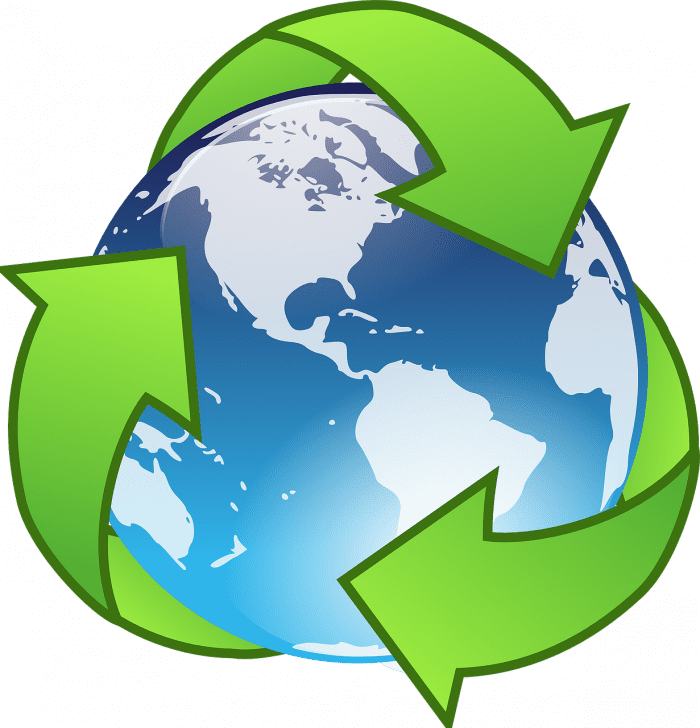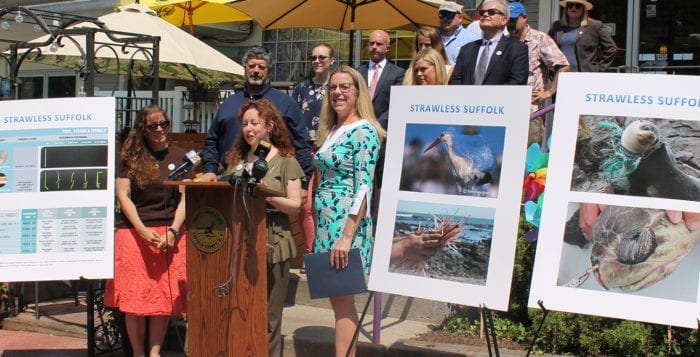By Nancy Marr
With two of our Long Island landfills closing in the near future, we will have to work together to redesign our way of handling waste.
New York State legislators, looking for ways to reduce the plastics sent to our landfills, have designed EPR bills (Extended Producer Responsibility) which require producers to reduce the amount of plastics they use and make them responsible for their final disposal, relieving municipalities of the cost. The EPR bills were not included in the New York State budget but there is hope that the legislature will pass an EPR bill before the summer.
The good news is that this week a bill that would establish as a state goal to “source reduce, reuse, recycle, or compost no less than eighty-five percent of the solid waste generated by the year 2032” was introduced by New York State Assemblyman Steve Englebright, chairman of the Committee on Environmental Conservation, and was passed by the Assembly. We anticipate strong support in the State Senate as well.
Think about all the sources of waste on Long Island: three million people in Nassau and Suffolk (each creating almost five pounds of waste per day), thousands of businesses, dozens of municipalities, and all of these having overlapping layers of authority, interests and goals. Not only does untreated waste spread across our globe pose a major threat to our health and environment, but it also represents an unexploited source of raw material that can be used. In other words, we treat waste as garbage rather than a resource.
Current systems for collecting and disposing of household waste are part of a linear economy, often categorized as “take, make, throwaway.” By contrast, a circular economy employs reusing, repairing and refurbishing, remanufacturing and recycling to return us to a system that keeps products, materials, equipment and infrastructure in use for longer; and most importantly, produces less waste.
Fortunately we have begun to implement new ways of using our resources, many recalling systems from the past. Repair Cafes, working under the aegis of the Repair Cafe International, are creating facilities where consumers teach one another to repair their furniture and appliances. This month, a Repair Cafe will open in Greenport at 539 First Street from 10 a.m. to 1 p.m. on April 23; it will join 2,333 cafes that exist in eight countries. Learn more about this concept at https://www.youtube.com/watch?v=LctHCGe91gk.
There are also reuse facilities that fix, update, and sell items that have been discarded, taking the concept of a thrift shop closer to a self-supporting business that keeps waste from the landfill. Producers are looking for more markets for the items created by recycling, which would keep them out of the landfill and make recycling programs more effective.
A Fair Repair Act (S149) was introduced last year and passed in the NYS Senate. This would recognize that consumers have a right to repair the devices they own or use independent repair shops, and require that equipment be designed for durability rather than replacement or disposal. Other states have passed many such bills, but it hasn’t passed in the NYS Assembly.
We need to meet the goals of Assemblyman Englebright’s bill if we are to combat climate change. We have the tools to transition to a circular economy, which will reduce the waste in landfills. The EPR programs that have been designed can reduce the plastics in landfills and other waste depositories. But we need local municipalities and community organizations to educate consumers about what to do — what and where to recycle, where to contribute cast-offs so others can use them, how to compost and how to use the compost.
They will need the support of the county government, the farm bureau, local civic associations, community organizations, churches, and local civic associations to provide training and encourage citizen involvement.
Assemblyman Englebright’s bill was passed by a large margin, suggesting that there is broad public support for building a zero waste economy. Each of us can let our county and state legislators know that we are relying on them to lead the way. To find your elected officials, go to https://my.lwv.org.
Nancy Marr is Vice-President of the League of Women Voters of Suffolk County, a nonprofit, nonpartisan organization that encourages the informed and active participation of citizens in government and influences public policy through education and advocacy. For more information, visit www.lwv-suffolkcounty.org or call 631-862-6860.






